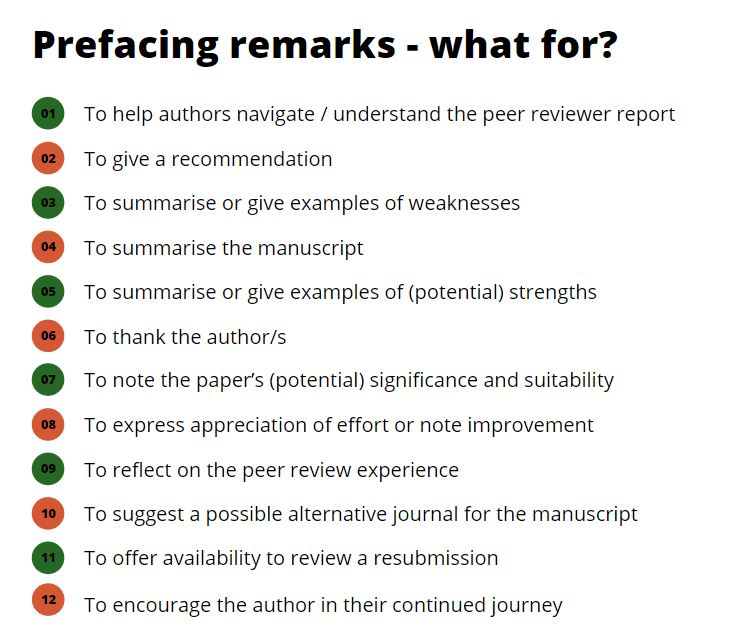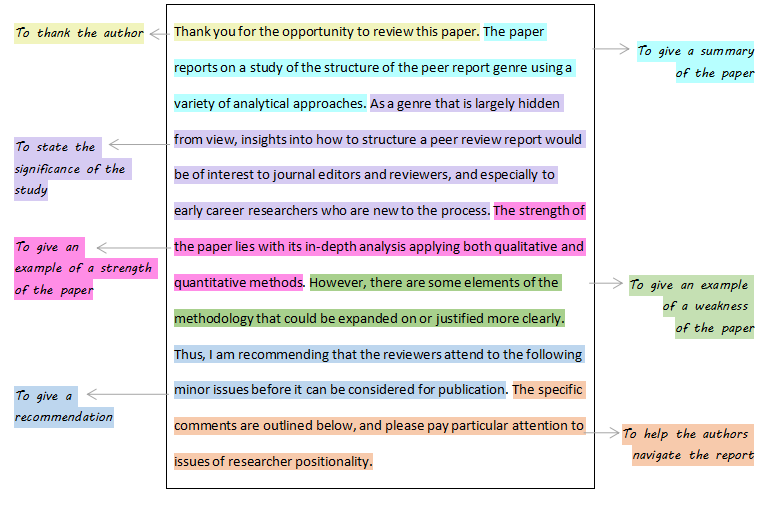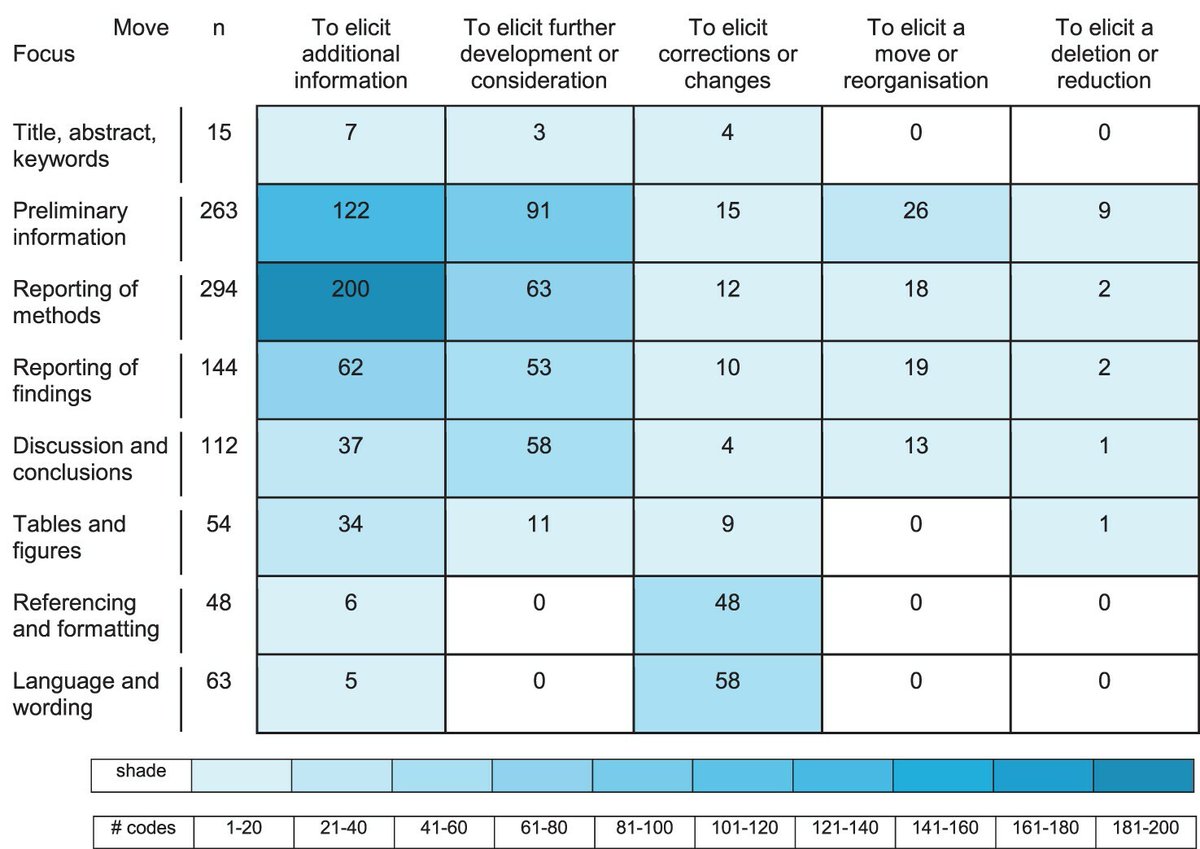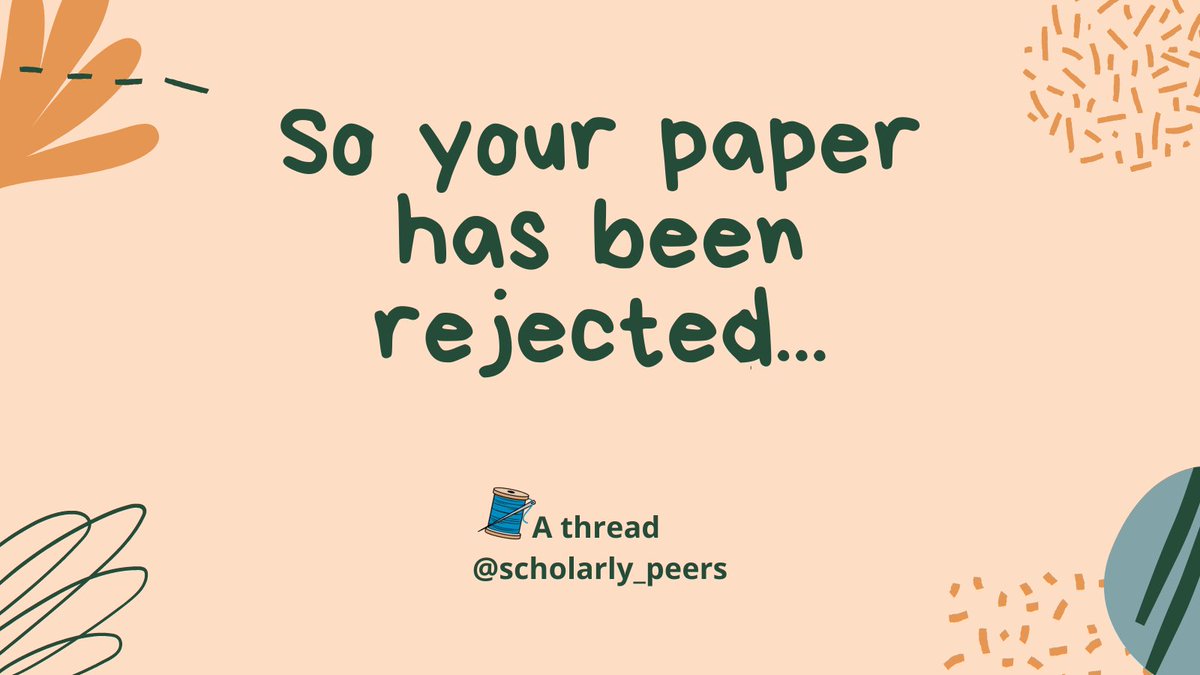Many #ECRs are anxious when they start reviewing for the first time. One of the challenges is how to write up the #PeerReview report (PRR).
Here's a thread that we hope will help 🧵
Here's a thread that we hope will help 🧵

In our experience, peer reviewers’ questions include:
*How should I structure the report?
*What should I focus on?
*How can I write a constructive report?
*How should I structure the report?
*What should I focus on?
*How can I write a constructive report?
This thread is based on our paper in @HERDJournal, which is available Open Access at doi.org/10.1080/072943…
In the paper, we report on an analysis of the content and structure of our own peer review reports (n=62).
(We are @Shan__Mason and @sinwangchong)
In the paper, we report on an analysis of the content and structure of our own peer review reports (n=62).
(We are @Shan__Mason and @sinwangchong)
Generally, we begin our PRRs with prefacing remarks. These remarks play a number of roles, including to help the authors navigate the report, to give a recommendation, and to summarise the manuscript itself and its weaknesses. (List below is in order of frequency) 

An example of prefacing remarks. (From shorturl.at/btyPV) 

Next we add the manuscript comments, which make up the bulk of the report. They may be listed in bullet points, and may be organised under sub-headings. In any case, each comment has a “specific purpose to elicit some kind of action from the author” (From shorturl.at/btyPV) 

An example of manuscript comments. (From shorturl.at/btyPV) 

The comments are squarely on the manuscript and its various elements (and never on the researcher). In our case most attention is given to methods, followed by the preliminary information (introduction, contextualisation, literature review, etc.).
(from shorturl.at/btyPV)
(from shorturl.at/btyPV)

Issues of language are not raised unless it impedes comprehensibility. In such cases we may add a general request for proofreading, but our role is not as proofreader, and we never request a "native-speaker check" 🤮
In some but not all cases we may include concluding remarks. These are found particularly in reports where a rejection or major revisions is the recommended outcome. 

An example of concluding comments. (From shorturl.at/btyPV) 

In some cases, we may bring the authors’ attention to our own relevant work (often our expertise in the area is why we've been asked to review a paper).
Importantly, this is never framed as a request for citation, and we add other researcher’s work to retain anonymity.
Importantly, this is never framed as a request for citation, and we add other researcher’s work to retain anonymity.
According to our computerised linguistic analyses, we tend to not use emotive language (<3% of words), and we are also inclined to use more ‘low modality’ verbs.
It may also be helpful ...
I suggest that ...
You might like to consider ...
It may also be helpful ...
I suggest that ...
You might like to consider ...
Finally, while we don’t want to conflate quantity and quality, many #ECRs ask about the appropriate length of reviews. Together, our average is 927 words. Our longer reports tend to be those that recommend rejection.
To clarify, we are both fairly new to #PeerReview, and are still learning. Here we reported *our* approach, which might not suit everyone.
We were thrilled to be given this award from @HERDJournal, so we thought we would share our ideas
We were thrilled to be given this award from @HERDJournal, so we thought we would share our ideas
https://twitter.com/HERDSA3/status/1286142412990029824
Please let us know in the comments your tips for writing a #PeerReview report, and please join us at @Scholarly_Peers
• • •
Missing some Tweet in this thread? You can try to
force a refresh





